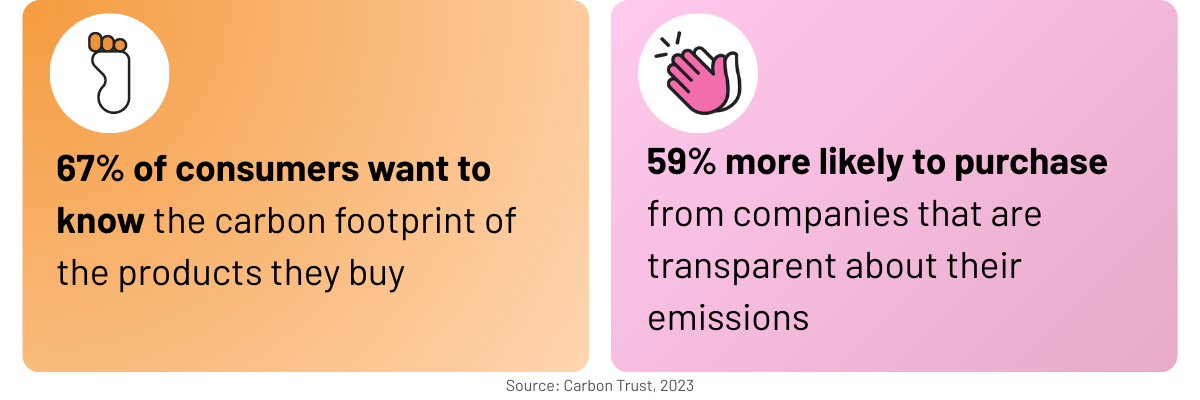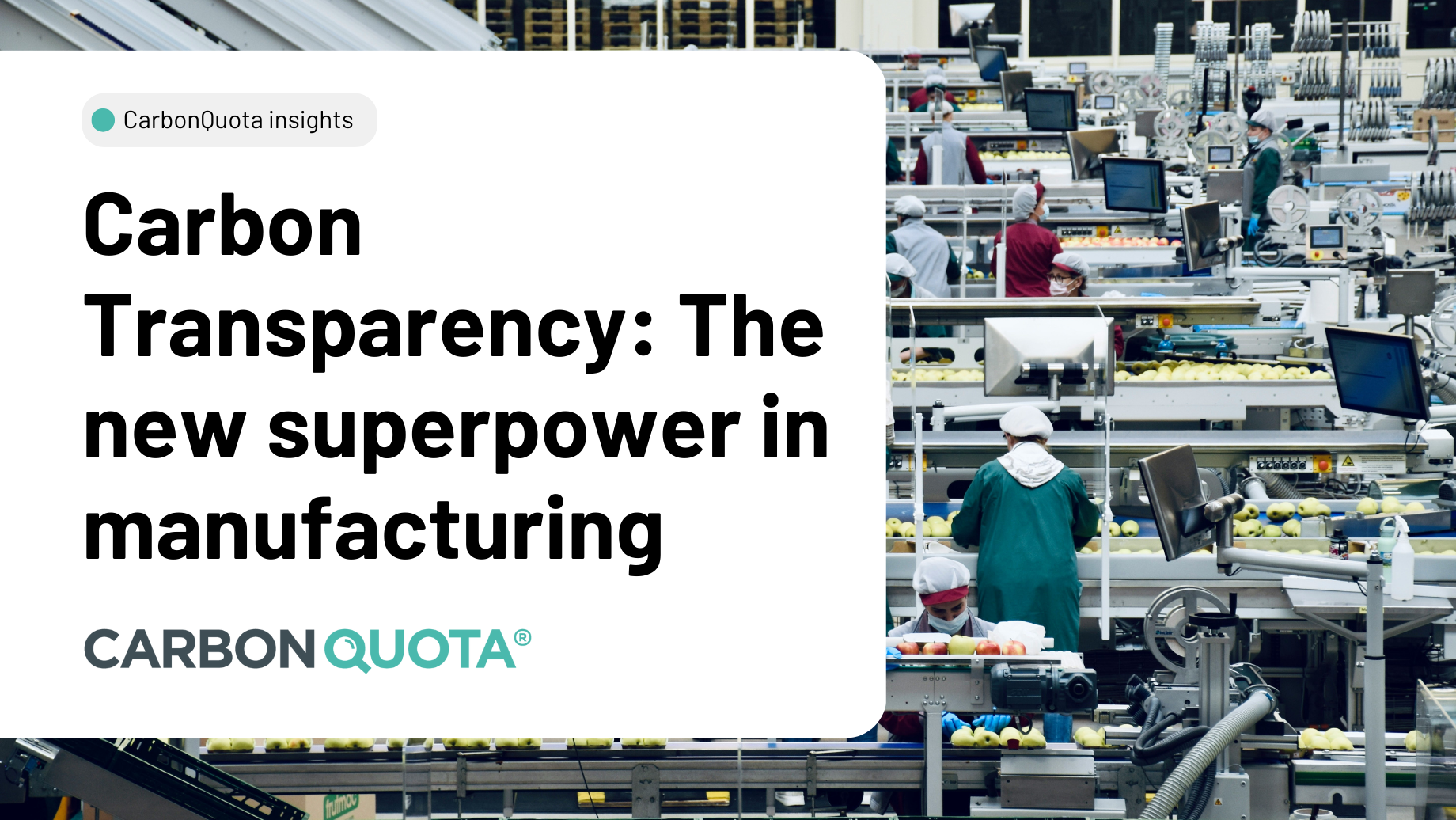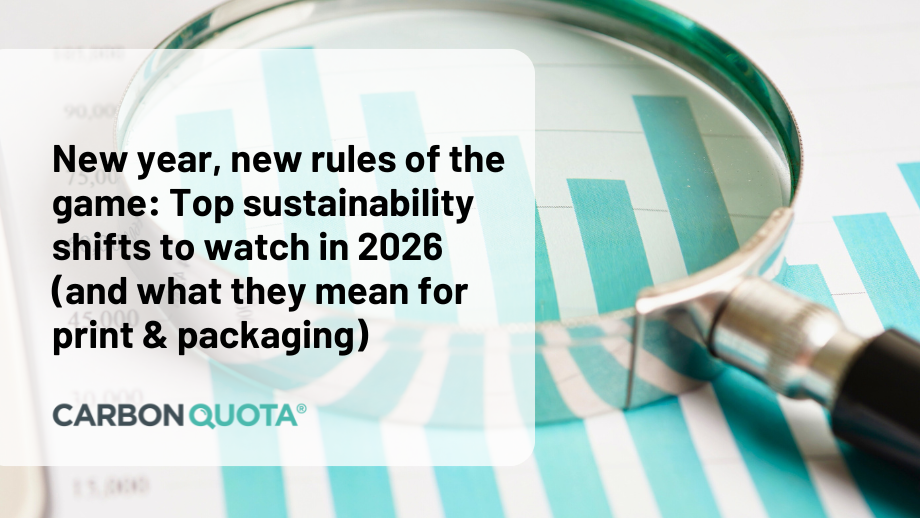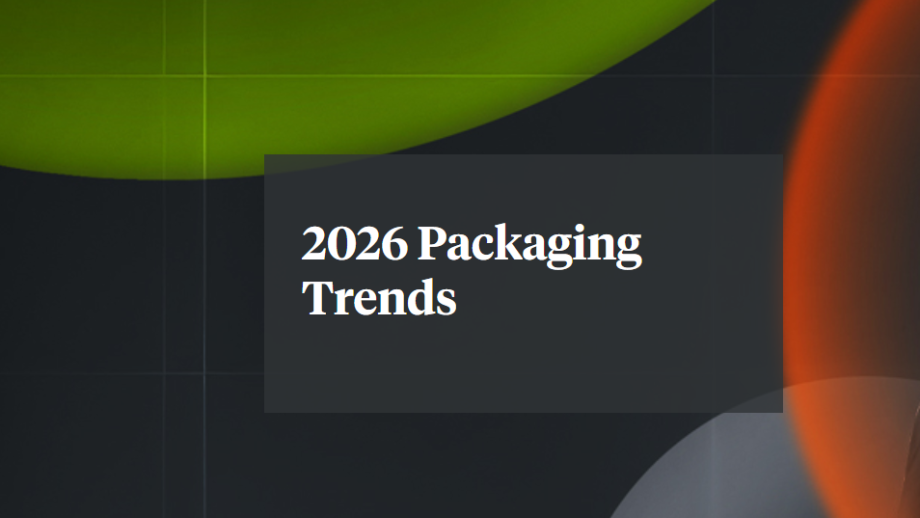As industries transition to a lower carbon future, one truth is becoming very clear: carbon transparency is no longer a nice to have and for Manufacturers, measuring and disclosing the carbon footprint of products and materials is unlocking a new era of competitiveness.
The tools? Product Carbon Footprint studies and Lifecycle Assessments. The advantage? A position of clarity and credibility.
The demand for carbon transparency
Buyers, brands, and investors are now demanding clear and credible carbon data. A 2023 report from the Carbon Trust revealed that 67% of consumers want to know the carbon footprint of the products they buy, with 59% more likely to purchase from companies that are transparent about their emissions (Carbon Trust, 2023).
In B2B markets, procurement teams are under mounting pressure to cut Scope 3 emissions, meaning they need suppliers who can provide verified, product-level carbon data.

From generic estimates to product specific insights
Generic emission factors and national averages are no longer enough. Competitive manufacturers are turning to Product Carbon Footprint (PCF) studies to calculate emissions across the full value chain – from raw material extraction to processing, transport, use, and end-of-life. Lifecycle Assessment (LCA) goes wider and includes other environmental impacts such as water use.
Promoting sustainability with credibility
Armed with verified carbon data, manufacturers can confidently promote their sustainability credentials to customers and prospects – backed not by claims, but by quantifiable results. Demonstrating a commitment to transparency and emissions reduction builds trust and strengthens brand reputation. It creates meaningful engagement opportunities with environmentally conscious clients and opens doors to sustainability-linked procurement frameworks, where buyers actively seek out low-carbon suppliers. In a market where greenwashing is under intense scrutiny, credible carbon reporting becomes a powerful sales and marketing tool.
“What’s emerging is a new superpower: transparency!”
Manufacturers who invest in accurate science-based studies using internationally recognise methodologies gain a granular view of their carbon hotspots, opening doors to innovation, efficiency and credible carbon reductions.
Avoiding greenwashing: A reputational risk manufacturers can’t ignore
Greenwashing – making unsubstantiated or misleading claims about environmental and sustainability practices – is no longer flying under the radar. Regulatory bodies and the media are increasingly calling out offenders and the reputational damage to your or your customer can be severe.
Manufacturers must ensure that any environmental claims are grounded in robust, verifiable data. Using PCF and LCA methodologies – and working with an independent specialist – provides the evidence base to speak credibly and avoid falling foul of regulations and public trust.
Differentiation through data
In a market where many of your competitors claim to be “sustainable,” carbon transparency becomes a tangible differentiator. Verified carbon footprints can be leveraged in tenders, ESG disclosures, green claims and customer communications. They can also underpin carbon reduction targets aligned with the frameworks such as the Science Based Targets initiative (SBTi), helping businesses stay ahead of tightening regulations such as the EU’s Carbon Border Adjustment Mechanism (CBAM) and the Corporate Sustainability Reporting Directive (CSRD).
Why work with a specialist consultancy?
While carbon accounting software is an important element of accurate carbon reporting, the complexity of PCF and LCA demands deep sector expertise. Specialist consultancies, like CarbonQuota, bring methodological rigour, supply chain insight, and industry-specific benchmarks that generic tools simply can’t match. We work hand-in-hand with manufacturers to model real-world operations, allocate emissions accurately and generate credible, auditable results. Plus, a specialist partner can help embed carbon data into operational decision-making.
Carbon transparency is power
As customer expectations grow and legislative requirements increase, the manufacturers who succeed will be those who can evidence their progress and assertions with science-based data – not declarations. Carbon transparency isn’t just about compliance or reputation – it’s about leadership, innovation and leadership.
With robust Product Carbon Footprints and Lifecycle Assessments as the foundation, and the right consultancy by your side, carbon transparency becomes your next competitive advantage.
Read how CarbonQuota are partnering with manufacturers such as Berger and Dufaylite to support their sustainability goals:
- Dufaylite have partnered with CarbonQuota to help meet their sustainability goals
- Carbon Footprint Assessment for Berger Textiles and Eikon
Contact us to explore we can help your business



